
Charcofalt - Biochar and Tarmac
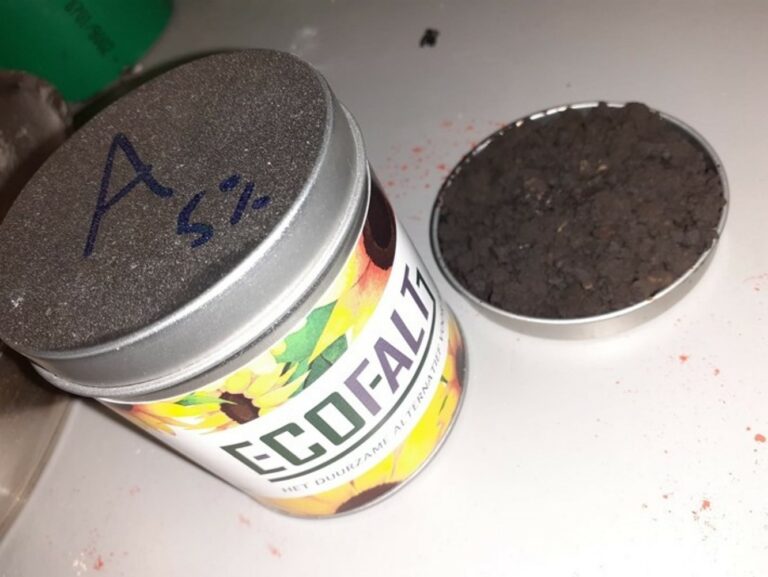
When you look at where there are a lot of CO2 losses within the municipal government, it is when making asphalt. How can we reduce this amount substantially?
| With Ecofalt there is a sustainable alternative for traditional hot asphalt but is produced completely cold. This results in a 100% reduction in gas consumption and CO2 emissions during production. Instead of petroleum-based bitumen, a special (biological) Ecofalt bitumen is used. A bitumen based on organic oils made from sunflower seeds, flaxes and linseed. If you combine Ecofalt and Biochar then you get a unique product, Charcofalt. This would be an asphalt mixture that in theory could even be CO2 positive! So, the more asphalt you apply, the more CO2 you store.In this project we will try to show that we can make Charcofalt with a positive CO2 footprint. The intention is to apply Charcofalt as a pavement, here on the site of the Ecofalt factory. |

 Video
Video

 Gallery
Gallery
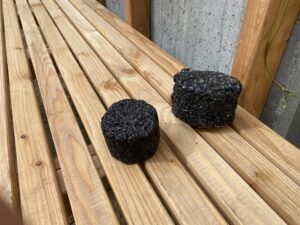
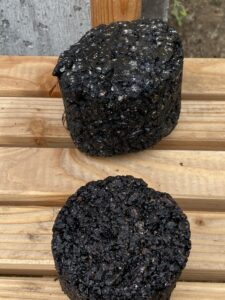

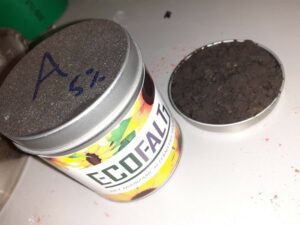
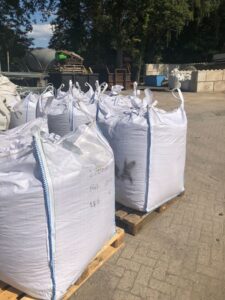
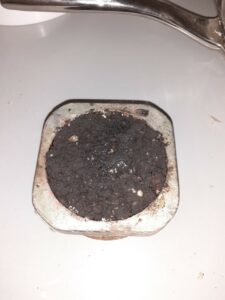

 Fact Sheet
Fact Sheet
Ecofalt is the sustainable alternative for traditional hot asphalt but is produced completely cold. This results in a 100% reduction in gas consumption and CO2 emissions during production.
Instead of petroleum-based bitumen, a special (biological) Ecofalt bitumen is used. A bitumen based on organic oils made from sunflower seeds, flaxes and linseed.
If you combine Ecofalt and Biochar then you get a unique product, Charcofalt.
This would be an asphalt mixture that in theory could even be CO2 positive! So, the more asphalt you apply, the more CO2 you store.
In this project we will try to show that we can make Charcofalt with a positive CO2 footprint. The intention is to apply Charcofalt as a pavement, here on the site of the Ecofalt factory.
How to?
- The making of Charcofalt would contribute to Carbon sequestration.
- Now, a quantity of Char has been delivered from Baden Baden (6 bigbags). The necessary physical and chemical tests are carried out. To determine whether it is sturdy and safe enough to be able to produce on a large scale.
- We will need to know exactly what the CO2 benefits are. How much CO2 can you store in a road with this? It will also have to become clear whether the addition of Char to asphalt can perhaps improve its physical properties.
- Market research will have to take place. It is now clear that it is technically possible to produce it on a larger scale. But what are the costs and are customers willing to pay this?
- If Charcolfalt has to be produced in larger quantities, there will have to be enough Char available. The amounts of biomass at Attero could then offer a solution. It is important that the cost price to buy Char is not too high and that sufficient can be delivered.
- It should become clear what the extra costs will be to add Char to Ecofalt. This cost price will have to be compared with the CO2 savings. There is also a possibility that the addition of Char to Ecofalt will also give the product other improved properties. More strength or/and a longer life expediency.
 Your turn!
Your turn!